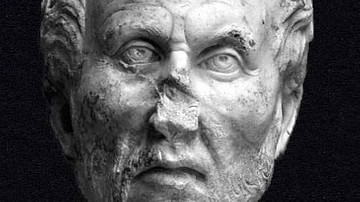The Greek philosopher Plato (l. 424/423 to 348/347 BCE) is recognized as the founder of Western philosophy, following his mentor, Socrates. He founded the Academy in Athens, traditionally considered the first university in the Western world, and established the tradition of philosophical dialogue, which formed the basis of Western philosophy and influenced later thinkers.
The philosopher Alfred North Whitehead has famously referred to all philosophical thought after Plato’s time as "footnotes to Plato." This collection presents a brief survey of the development of Western philosophical thought from the Pre-Socratic philosophers through the Neo-Platonist philosopher Plotinus, whose work influenced the development of Judaism, Christianity, and Islam.










